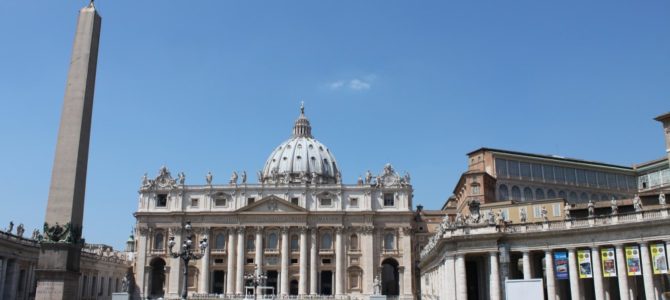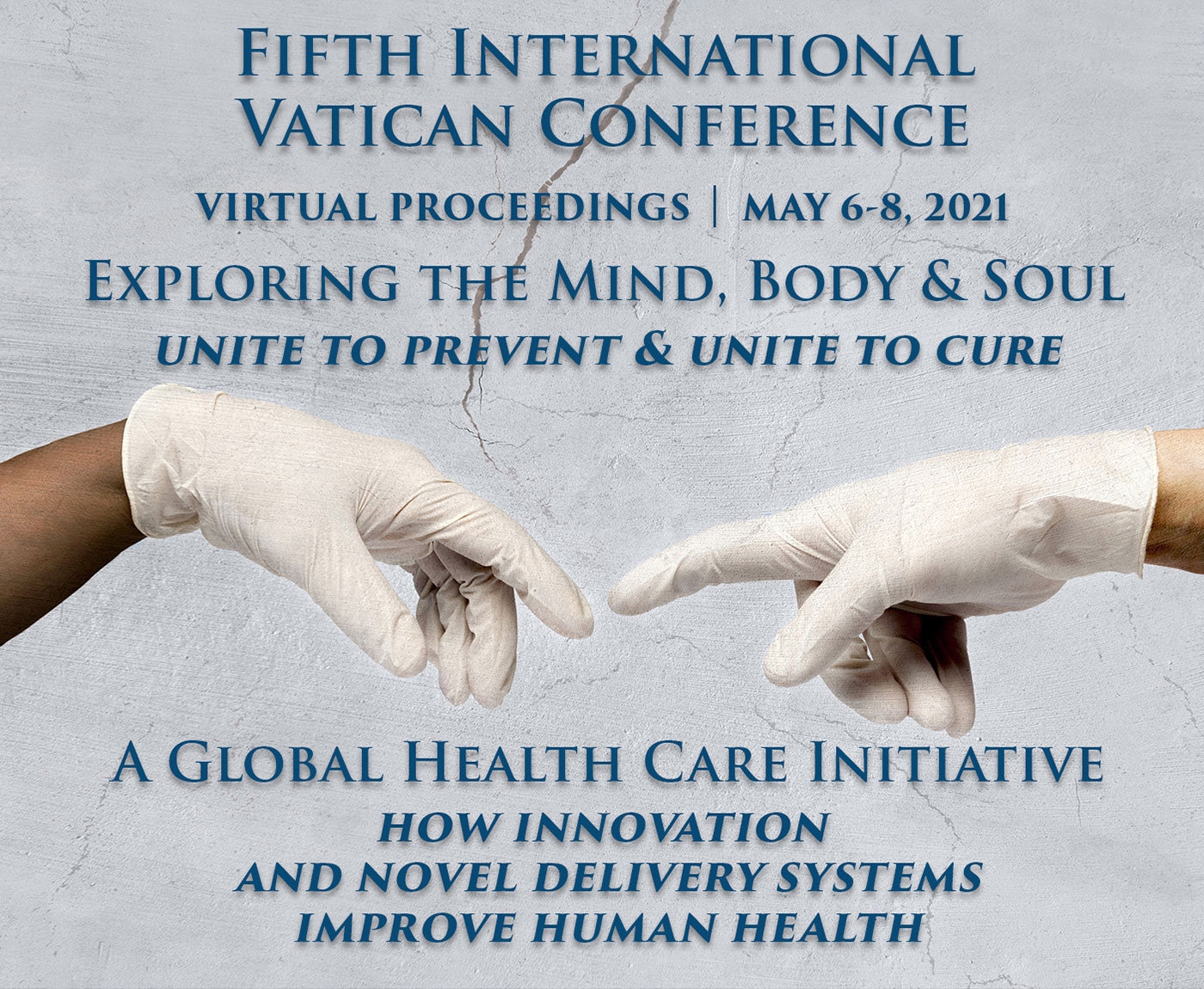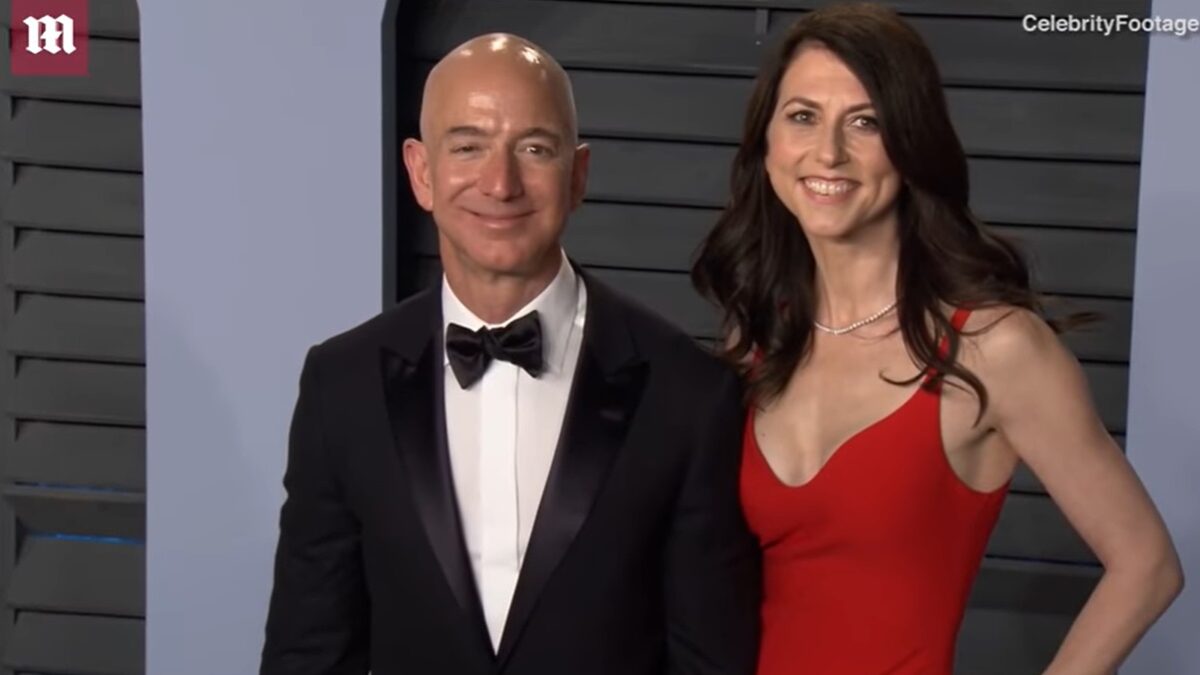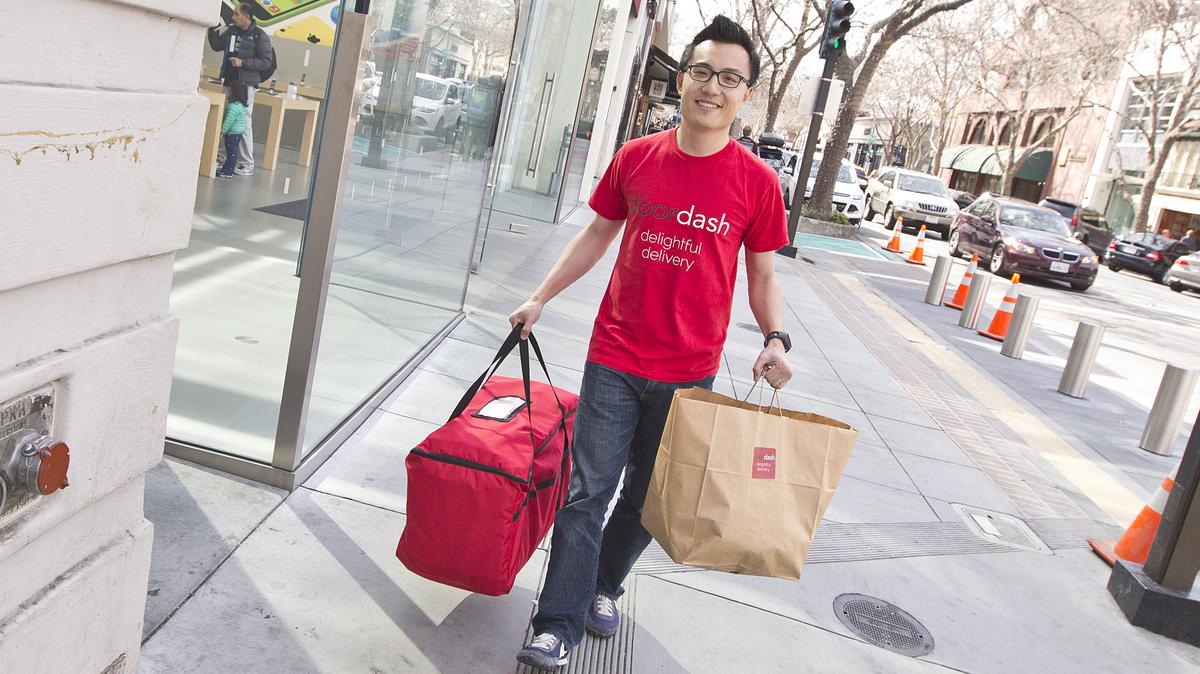
The pressure for universal injection with a biological agent still under probation is unprecedented. Equally remarkable is the papal embrace of vaccine politics and its network of commercial partners and global governments. Propelled by COVID, the military-industrial complex of 60 years ago has its parallel in the medical-industrial complex. And the Vatican approves.
In January, Pope Francis suggested we are morally obligated to take an experimental coronavirus vaccine. Not to take it was “suicidal denialism” and an offense against love of neighbor. A needle in every arm is the only decent thing.
Addressing the World Bank and International Monetary Fund on April 4, he advocated “global governance” to enforce “a justly financed vaccine solidarity.” It was a good day for stakeholders in the global market for the newly patented vaccines.
The Fifth International Vatican Conference on cell therapies followed weeks later. Conducted over Zoom this year, it was co-hosted by the Pontifical Council for Culture under Cardinal Ravasi, and Robin L. Smith’s Cura Foundation and its subsidiary, Stem For Life.
A Biotech Trade Show with the Vatican
Cura is a triumvirate run by Smith and two trustees: Steven G. Martin, founder of Aspire Capital, and TV’s Max Gomez. Martin is Cura’s venture capital doyen; Gomez is Cura’s media genie.
“Unite To Prevent & Unite To Cure: Exploring the Mind, Body & Soul” was the keynote of this year’s three-day public relations event. Billed as a health conference, no conferring took place. It was a succession of presentations by talking heads on their work or worldview. Stripped of artful packaging, it was a stalking horse for the speculative, cash-burning biotech industry.
Pre-recorded sessions with biotech honchos—from the CEOs of Pfizer and Moderna to Google Health’s David Feinberg—raised no sensitive issues. The National Institutes for Health’s Francis Collins was not asked about his affection for fetal cell research. Each industry segment delivered what the financial press calls “forward-looking statements.” No risk factors admitted.
A fawning interview with Anthony Fauci by Sanjay Gupta opened the program. Star-struck Gupta did not press Fauci on any issue. The long-term safety of cell therapy technology applied to a vaccine was taken for granted.
No mention was made of the early suppression of available, inexpensive out-of-patent therapeutics (e.g., hydroxychloroquine, ivermectin). The ethics of mandatory vaccination went unexplored. Fauci’s smug performance as a scientific diva signaled the Potemkin nature of the project.
This was the latest in an elaborate series of trade shows launched a decade ago by the cardinal and Smith, a marketing-savvy mergers-and-acquisitions specialist. In June, 2011, the Pontifical Council announced a partnership with the biopharmaceutical firm NeoStem.
Smith was executive chairman at the time. Gambling on an “emerging” company in a high-risk industry, the Council committed $1 million to jumpstart the collaboration. Five months later, NeoStem co-sponsored the Vatican’s first conference on cell research. (NeoStem’s clinical trials disappointed. Stock plummeted. Smith shuffled management. Rebranded in 2015, it is now Caladrius Biosciences.)
The Vatican’s Alliance with Venture Capital
The series’ stated aim is creation of a global agenda for “shaping the future of our planet” by conquering disease. Less public is its role as a resumé-enhancing showcase for investment-needy biotech companies. The riskiest portion of the market, their future can rest on the outcome of a single clinical trial. In brief, the series represents a surprising alliance of the Vatican with venture capital.
Smith, an M.D. with an M.B.A. from Wharton, identifies as a philanthropist. A better term is venture philanthropist. She created Cura to raise money for development of cell therapies—and, in the doing, to strengthen the revenue potential of a relatively young industry with a high failure rate.
Venture capital is crucial to biotech start-ups; competition for it is fierce. Cura directs money to that class of biotech companies invested in by Aspire Capital and in which she holds equity as a board member. (Aspire participated in the conference.)
Investing Advised by the Catholic Church
Choreographed by Smith, the series was staged for the purpose of being reported on. Yet not until this year’s celebrity-dense medicine show sported a tasteless logo did the series raise Catholic eyebrows.

Its vulgarity drew attention to a mélange of subjects unrelated to the Catholic Church’s reason for being. A this-world agenda displaced Christianity’s distinctive mission: cultivation of a higher understanding of the purposes of life. The syllabus linked cell therapy to New Age mindfulness (Depak Chopra), plant-based diets, holistic wellness, music therapy, the genetic basis of empathy, sustainable agriculture, and a low-carbon future. Add fine thoughts by defenders of abortion and population control, such as Chelsea Clinton, Jane Goodall, and others.
Incoherence and sanctimony obscured the nub of things. Presence in high-profile events like this is a spur to donors and investors. A hefty 256-page catalog mailed to registrants was crafted to attract fairgoers to conference sponsors, grantors, and advertisers.
It came with a sleek black notebook and matching cell phone stylus courtesy of key sponsor Sanford Health, of which Smith is a trustee. Brimming with testimonials—a fundraising staple—it crowned Moderna’s CEO Stéphane Bancel with a Pontifical Hero Award for Inspiration. Max Gomez got the same for “educating the public.” God-in-the-lab was the product on offer.
End Global Suffering By Genetic Experimentation
The title word international was misleading. The conference was peopled almost exclusively by Americans. All ten broadcasters, from Katie Couric to Dr. Oz, were American media stars. Additional celebs, from Cindy Crawford to Aerosmith’s Joe Perry, were American.
Nearly all academics, medical directors, foundation managers, health care activists, and biotech professionals were American. In short, the production aimed at an American audience. And the American dollar. All in support of a globalist ambition to “end global suffering.”
Termed supporters and benefactors, advertisers included various therapeutics firms. Here were Sorrento Therapeutics and Celularity, two of several companies in which Smith holds equity as a board member. Smith herself and Moderna were “Key Gold” benefactors.
Ads appeared by multiple organizations with an interest in biotech as shareholders or grantors (e.g., AARP, Helmsley Trust). American investment vehicles were prominent: Akkad Holdings, Alliance Global Partners, Aspire Capital, investment bank Piper Sandler, Stern Aegis Ventures, others.
Among troubling participants was CRISPR Therapeutics. CRISPR is credited with dissolving the moral divide between gene editing to cure disease and its use in manipulating inherited traits. This is a dicey area that tips into social engineering via means to create human zygotes with heritable modifications. Yet the Vatican offers publicity to a firm working to rewrite the human genetic code minus any ethical debate. Does a rising Nasdaq rating overcome scruples?
Buying and Selling in the Temple
The Vatican’s legendary reticence about its finances leaves unclear when it began seeking returns from the ticklish biotech market. What is clear is that Rome’s Congregazione dei Figli dell’Immacolata Concezione, a religious institute “with close links to the Vatican,” bought a cancer-drug research lab from Pfizer in 2004. The congregation renamed the lab Nerviano and signed drug-development contracts with Pfizer and Bristol-Myers Squibb totaling more than $400 million. (In difficulty, Nerviano announced the sale of 90 percent of its interest to SARI, a Chinese biotech investment company, for $359 million in 2017.)
Five promotional expos on biotechnology within a decade signify more than pious concern for human health. So does the canonizing of Moderna, a ten-year-old firm that had not brought a single drug to market prior to the vaccine in which the U.S. government has invested, in total, $6 billion.
The Vatican is not to blame for putting its assets to work. But by shilling for a volatile, cash-strapped industry the Vatican conspires with a cartel of necessarily self-interested entities: competitive drug companies, lobbyists, academics, grant-seeking scientists, and research institutions, plus government bureaucracies. It aligns with a research leviathan beholden to the benefit of its paymasters.
This same aggregate of interests is rife with the jockeying for position, careerist ambitions, self-dealing, and eye for market opportunities as any other industry. It can serve a broad range of purposes, many of them unsympathetic to a Judeo-Christian vision of man.
In his 1961 farewell address to the nation, President Eisenhower warned against the power of money on research, particularly federal money. He foresaw the “danger that public policy could itself become the captive of a scientific/technological elite.” Willing captive to that elite, the Vatican forgets that Jesus of Nazareth did not heal the sick to abolish disease.









